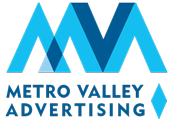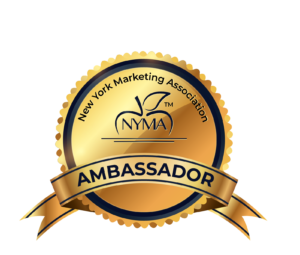Frequently asked questions or FAQ’s on websites are not new. They have always been a useful tool in creating content and answering basic questions. But, with the rise in voice-powered search and the use of Large Language Models (LLM’s) like ChatGPT and Perplexity, FAQ’s have never been more important. More than ever, your website needs FAQ’s.
Today’s modern website needs FAQ’s for a number of reasons. First, they speed up lead generation by reducing friction and building trust. Second, they improve organic search (SEO). And now, as more people search using AI, they help your website show on those critical AI results pages.
What is an FAQ Page?
An FAQ page is a dedicated space on your website where you list common questions and clear answers. It is simple in form, but powerful in function. It deals directly with the doubts and hesitations that potential customers have. While your main content tells your story and describes your services, your FAQ page answers real concerns with direct language.
This matters in lead generation. When people visit your website from any source, paid media, organic search, referrals, or word-of-mouth, they have questions. Those questions can slow down their decision process. FAQs move prospects forward by addressing the obstacles that stand between interest and conversion. For an advertising agency, where we measure every lead, this matters a great deal.
Do You Need FAQs?
If your prospects ask the same questions repeatedly, you need an FAQ page. Every business receives recurring questions from phone calls, emails, or forms. These questions signal confusion or uncertainty in the buyer’s journey. By addressing them clearly online, you reduce friction. Hence, your website needs FAQ’s.
When friction drops, leads move faster. Visitors gain the clarity needed to trust you. They no longer have to wait for a call, meeting, or response. However, to be effective, FAQs must be kept up to date. Answers should reflect your current services, pricing approach, or positioning. Out of date responses can erode trust rather than build it.
How FAQs Help with Lead Generation
Lead generation improves when people have fewer doubts. FAQs help prospects self-qualify. They give visitors the information they need to decide if your offering is a fit. As a result, lower-quality leads often filter themselves out earlier in the process. Higher-quality leads are comfortable advancing.
FAQs also build trust. When you answer questions directly, you show that you understand the customer’s thinking. You demonstrate transparency and clarity. In many cases, FAQs reduce the volume of basic inquiries to your intake team. That saves time and helps sales conversations focus on deeper value rather than simple clarifications.
From an advertising agency perspective, FAQs are critical. When you are spending money to drive traffic, the website must convert. A site that does not address user questions forces your media spend to work harder than necessary. FAQs help your paid traffic convert at a higher rate. A direct improvement to lead generation performance.
How FAQs Help with SEO
FAQs improve SEO in several ways. First, they let you expand your keyword coverage. People often search in question form. When your site contains those natural language questions, you gain visibility in those search patterns.
Second, FAQs improve user experience. When visitors find answers quickly, they are less likely to bounce. They stay longer on the site. These signals tell search engines that your content is helpful and relevant.
Third, properly structured FAQs can appear in enhanced search formats. These formats may include expanded listings or featured snippets. When your answer appears directly in a search result, click-through rates often increase.
Finally, FAQs strengthen the value of your existing content. They support your broader site structure and reinforce the themes that drive organic visibility. For agencies focused on lead generation, this means more qualified traffic at a lower cost per lead.
What is AEO and Why Structured Pages Like This Matter
Answer Engine Optimization (AEO) is the practice of structuring content so that your site becomes the answer in AI-powered search environments. Unlike traditional SEO, which focuses on ranking positions, AEO focuses on being selected as the spoken or generated answer.
As more users rely on voice search and AI-driven results, the source of the answer matters. FAQ pages are ideal for AEO because they present information in the exact question-and-answer format that answer engines look for. Clear, structured answers increase the chance that your site will be chosen as the source.
This has implications for lead generation. If your business is the one providing the answer, you become the first point of consideration. You win attention before your competitors are even viewed. That is a strong advantage.
How to Generate FAQs
The best FAQ content begins with listening. Review your intakes, emails, form submissions, and support inquiries. Identify the questions that repeat most often. These questions represent the true decision obstacles in your conversion process.
Next, conduct basic keyword research to understand the exact phrases people use. Start with Google search by typing possible questions in the query bar and looking at the auto complete answers. Scroll down on the Search Engine Results page and find the “people als ask” box. If you have Google ads, utilize the keyword planner.
Once you have your questions, write your answers in clear, plain language. Keep each answer brief. Aim for 50–60 words so that the content is direct and easy to understand.
Prioritize the highest-impact questions first. Ask yourself which questions cause hesitation? Which questions, when answered, make the lead more confident? Over time, update your FAQ content as new questions arise or as your services evolve.
Where to Place FAQs on Your Website
There are several ways to place FAQs on your site. A single, central FAQ page works well for general questions that apply to your entire business. This page should be easy to find in your navigation.
However, many businesses benefit from placing FAQs on key service or practice area pages. When the questions are specific, placing them near the relevant offering increases clarity. You may also include FAQs within blog posts or knowledge base articles to support more detailed topics.
The main principle is accessibility. Visitors should never have to search hard to find answers.
One FAQ Page or Many FAQ Pages?
If your business has multiple service lines or client segments, consider multiple FAQ pages. A central FAQ page may serve broad questions about your company. Separate pages can address individual services, practices, or product-based content.
This approach improves relevance and supports better lead quality. When visitors see questions specific to their situation, your message feels more tailored. That leads to higher engagement and stronger conversion.
Schema Mark-Up and Why It Matters
Schema is structured data code added to your website to help search engines understand your content. When applied to FAQs, schema identifies the text as a question-and-answer format. This allows your FAQ content to appear in enhanced search features.
The best approach is to work with a competent web developer and test your implementation with Google’s tools. This step may be more technical than many business owners want to tackle.
The payoff can be meaningful. Even small improvements in search visibility can increase qualified traffic. For a business focused on lead generation, this is a worthwhile gain.
Getting Started
Begin by auditing your existing content and identifying the most common questions. Decide whether you need one FAQ page or multiple FAQ pages. Write 10–15 concise questions and answers that support your lead generation goals. Add schema where appropriate. Monitor performance, then review and update your FAQs regularly.
Your Website Needs FAQ’s
FAQ pages are no longer optional. They are essential tools for lead generation, SEO, and now AEO. FAQ’s help move prospects forward, reduce confusion, build trust, and increase the conversion value of your traffic. They also prepare your site for how people are searching today and tomorrow. Your website needs FAQ’s. Let us know if you need help.



